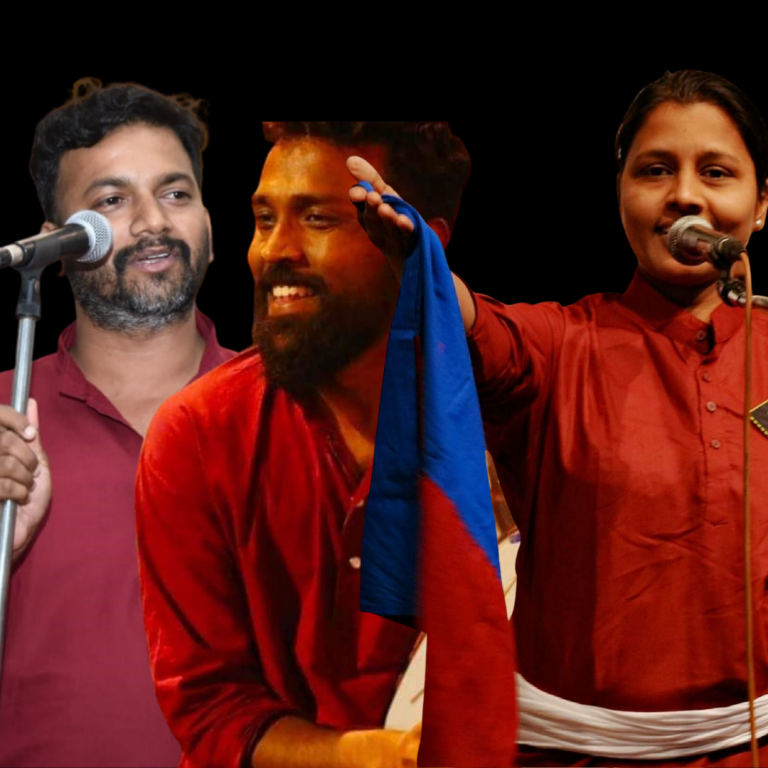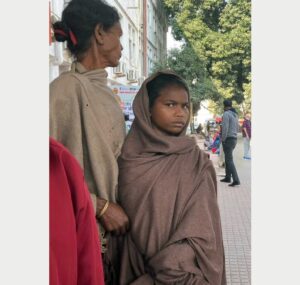
The crushing power of street performances from the margins: A profile of Kabir Kala Manch’s Sagar Gorkhe, Jyoti Jagtap and Ramesh Gaichor

“At no time have governments been moralists. They never imprisoned people and executed them for having done something. They imprisoned and executed them to keep them from doing something. They imprisoned all those prisoners of war, of course, not for treason to the motherland […] They imprisoned all of them to keep them from telling their fellow villagers about Europe. What the eye doesn’t see, the heart doesn’t grieve for.”― Aleksandr Solzhenitsyn, The Gulag Archipelago, 1918-1956
A political prisoner is a person who is imprisoned for their belief. Regimes across the globe arrest people for who they are and not for what they have done, thus making the category of the political prisoner into a criminal offense. It is a thought crime: the crime of thinking, acting, speaking, probing, reporting, questioning, demanding rights and, more importantly, exercizing citizenship. It is also a crime of existing in a Black, Brown, Muslim body that can be targeted and punished for who they are, or what they represent.
These inhumane incarcerations do not just target private acts of courage, they are bound together with the fundamental questions of citizenship, and with people’s capacity to hold the State accountable – especially States that are unilaterally and fundamentally remaking their relationship with their people.
The assault on the fundamental rights has been consistent and ongoing at a global level and rights-bearing citizens are transformed into subjects of a surveillance State.
In this transforming landscape, dissent is sedition, and resistance is treason.
A fearful, weak State silences the voice of dissent. Once it has established repression as a response to critique, it has only one way to go: to become a regime of authoritarian terror, a source of dread and fear for its citizens.
How do we live, survive, and respond to this moment?
In collaboration with maraa, The Polis Project is launching Profiles of Dissent. This new series centers on remarkable voices of dissent and courage, and their personal and political histories, as a way to reclaim our public spaces.
Profiles of Dissent is a way to question and critique the State that has used legal means to crush dissent illegally. It also intends to ground the idea that, despite the repression, voices of resistance continue to emerge every day.
It also intends to ground the idea that, despite the repression, voices of resistance continue to emerge every day.
Kabir Kala Manch Kabir Kala Manch (KKM) is an urban grass-roots performance group at the helm of a socio-political movement rooted in cultural struggles of the most marginalized communities in India. KKM was formed by working-class youth from low-income Dalit and Bahujan caste communities in Pune as a response to the 2002 pogrom in Gujarat. Drawing inspiration from India’s legacy of dissent – from Kabir and Sant Tukoba (Tukaram) to Dr Bhim Rao Ambedkar, Jyotiba and Savitri Phule, Bhagat Singh, Annubhai Sathe and contemporary cultural activists such as Sambhaji Bhagat and Vilas Goghre – KKM write and perform Marathi and Hindi songs and street plays in the language of India’s laboring people. KKM’s performances are accompanied by the rhythmic sound of the duff, one of the instruments of Indian resistance movements since the 16th century. KKM performs on the streets and also works with leftwing organizations such as trade unions…
Related Posts


Donald Trump’s Master Economic Plan I Opinion by Yanis Varoufakis




